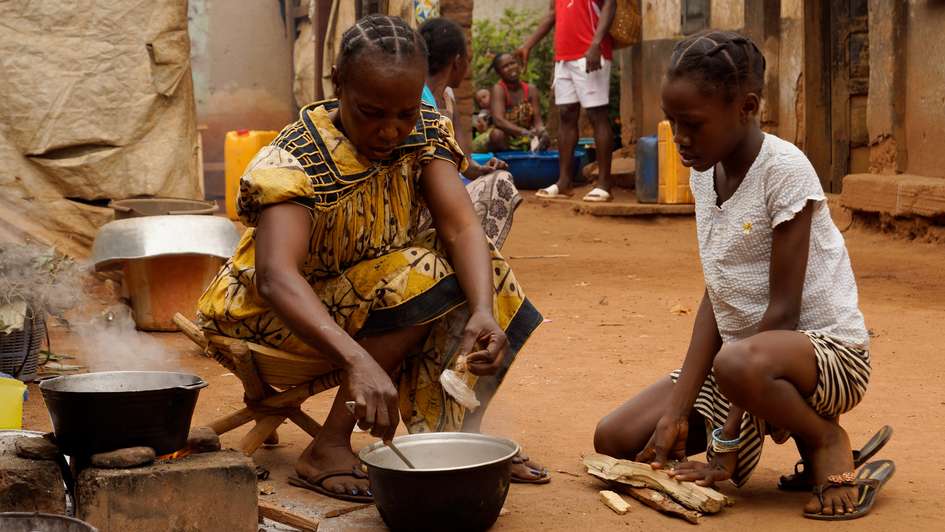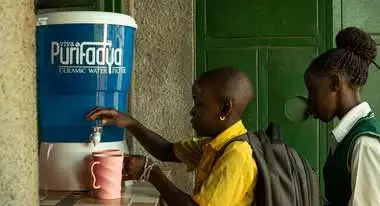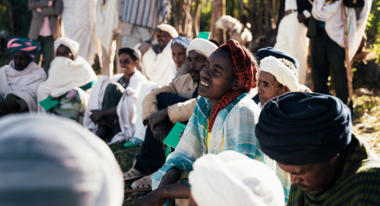As G7 Ministers Meet, 40 Nonprofits Call for Stronger, More Far-Sighted Action on Food Security
G7 Development Ministers Meet in Berlin on Global Food Crisis

Bonn/Berlin, 5/19/2022: With Development Ministers of the G7 nations gathering in Berlin for a two-day meeting Wednesday and Thursday, Welthungerhilfe was one of 40 humanitarian and development aid organizations hailing from around the globe that, in a joint statement, urged the world’s most powerful governments to take stronger action to prevent food insecurity more reliably over the long term.
“We welcome the G7's investments in short-term, emergency measures, which are helping to save lives. But at the same time, a longer-view course must now be charted for building a more just and sustainable food system worldwide,” said Mathias Mogge, Secretary General of Welthungerhilfe, one of the largest private aid agencies in Germany and a leading international development and humanitarian organization.
Mogge called on German Development Minister Svenja Schulze and her colleagues, the development ministers from the other G7 nations, to avoid a repeat of the crisis in 2008 that left more than one billion people threatened by hunger and food insecurity.
At the ministers’ meeting Wednesday in Berlin, Schulze announced the formation of a new a new Global Alliance for Food Security (GAFS), which brings together the G7 countries and the World Bank to coordinate food aid. To be effective, the new alliance will need to avoid the mistakes made in failed, previous international initiatives that relied only on short-term injections of food aid rather than far-sighted steps to build more resilient food systems in the longer term.
“G7 countries committed in 2015 to the goal of lifting some 500 million people out of severe food insecurity by 2030,” Mogge said, “but to reach that target they must increase their financial pledges over the coming decade and strengthen their cooperation.”
A call for more inclusive diplomacy, and greater attention to addressing long-term causes of chronic food insecurity, were the first of several measures advocated Wednesday by the 40 aid organizations in their joint statement. Other measures included tailoring assistance modalities to include cash and in-kind food aid that can reach hungry people most quickly in a crisis; and addressing conflict-induced hunger with, among other measures, swift action to hold perpetrators of violations of international humanitarian law accountable.
According to Mogge, the Sustainable Development Goals (SDGs) cannot be achieved with emergency measures alone, mobilized during one acute hunger crisis or another. Achieving the SDGs will require substantial progress on building more just, resilient and sustainable food systems worldwide. This will require longer-term financing mechanisms to ensure food security and reduce dependency.
To this end, the G7 countries collectively must make an additional $14 billion available each year, at least, for investment in long-term food security measures as well as emergency aid. Germany's share here should be at least $1.4 billion per year.
The G7 must recognize the human right to food, and show the political will needed to eliminate imbalances by creating fair trade relations and enforcing human rights as well as environmental regulations. G7 countries have a responsibility to contribute to a global sustainable food system geared to meet the needs of impoverished and food-insecure populations. As part of their development cooperation, they must work to strengthen smallholder agriculture and rural development, through long-term partnerships with affected countries and by closely involving and supporting civil society.
“The final communiqué of the Conference of Agriculture Ministers held earlier this month has already been presented,” Mogge said. “But now a real joint strategy must be formulated and implemented to promote and defend the human right to food."
Additional Information
- The UN’s "Global Report on Food Crises 2022" was launched Wednesday, May 4, 2022, by the Global Network Against Food Crises and the Food Security Information Network. It captures the latest figures on people suffing acute food insecurity. In its last interim update, published in September, 2021, the number was 161 million people in 42 countries or territories. Read more: https://www.fsinplatform.org
- The total number of hungry and malnourished people had already risen to 811 million people in 2020, according to the last annual report released by United Nations: UN report: Pandemic year marked by spike in world hunger.
Welthungerhilfe turns 60 this year. It is one of the largest private aid organizations in Germany; politically independent and non-denominational. With courage and determination, it is striving for a world without hunger. Since it was founded on December 14, in 1962, 10,369 overseas projects in about 70 countries have been supported with 4.2 billion euros. Welthungerhilfe works on the principle of empowering people to help themselves: from fast disaster relief to reconstruction and long-term development cooperation projects with national and international partner organisations.







